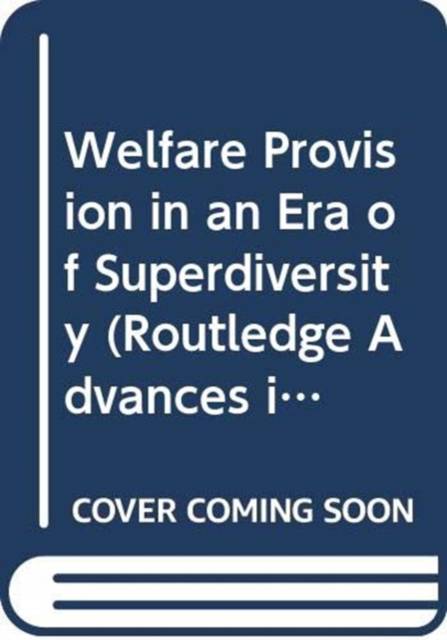
- Retrait gratuit dans votre magasin Club
- 7.000.000 titres dans notre catalogue
- Payer en toute sécurité
- Toujours un magasin près de chez vous
- Retrait gratuit dans votre magasin Club
- 7.000.000 titres dans notre catalogue
- Payer en toute sécurité
- Toujours un magasin près de chez vous
Description
The past 20-30 years have seen enormous changes in the way we live as societies and cultures across the world have become integrated through communication, transportation, and trade. Globalisation has accelerated the speed and scale of migration, brought changes to migration patterns, and led to the development of the phenomena of new migration. Little is known about the experiences of new migrants trying to access welfare services in what has become acknowledged as a new era of migration: the era of super-diversity.
This book will be the first of its kind to focus on the current position and future implications of super-diversity and social welfare. It will look in detail at the impact of super-diversity for the delivery of social welfare across a range of social policy areas and provide an insight into the lives of migrant communities. By examining the exiting literature and empirical data the book will not only outline the current thinking and position on super-diversity but will also explore the possible trajectory of welfare systems and provide possible solutions by outlining mechanisms for mitigating the challenges facing migrants and providers operating in an era of super-diversity.
There are no competing books that cover super-diversity and welfare provision. It will therefore appeal to a number of different markets interested in the issues and challenges of super-diversity, including undergraduate and postgraduate students, academics interested in social policy-related research, policy makers and practitioners. The book is written in a student and lecturer friendly style, making it a useful teaching and research resource.
Spécifications
Parties prenantes
- Auteur(s) :
- Editeur:
Contenu
- Nombre de pages :
- 256
- Langue:
- Anglais
- Collection :
Caractéristiques
- EAN:
- 9780415718943
- Date de parution :
- 01-01-26
- Format:
- Livre relié
- Format numérique:
- Genaaid
- Dimensions :
- 156 mm x 233 mm







